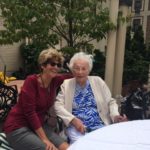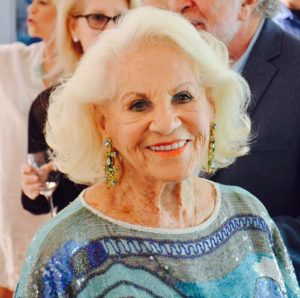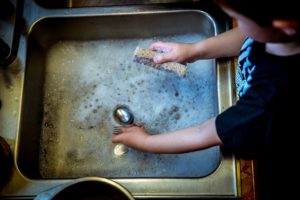 When my youngest grandson was 3, he moved a chair to the sink, climbed up, and started washing his dish. He did it mindfully, not like some kid splashing for the fun of it.
When my youngest grandson was 3, he moved a chair to the sink, climbed up, and started washing his dish. He did it mindfully, not like some kid splashing for the fun of it.
Watching him, I remarked at how “capable” he was.
I explained that being capable meant he could handle stuff. Someone who is capable knows how to get things done.
Grandson #3 got it. He liked being called capable. Now, at almost 11, he is even more capable.
Isn’t it time we talked about how important it is to be CAPABLE? Parents, pay attention. No, everyone, pay attention!
In the spirit of full disclosure, this piece is not a reaction to our current pandemic. I started writing it because I believe that being capable is an underrated quality. The capable are better equipped to cope than the uncapable. Today, more than ever, as a country and as individuals, we need to be capable if we are to survive.
Being capable is often misunderstood. It has little to do with intelligence or circumstances or possessing a particular skill. It is an attitude, a character trait, an inner strength. It’s the potential to keep going, even when you are stumped or starting to lose interest. A voice inside you says you can do this.
Being capable is best learned when children are young and eager to participate in the tasks of everyday life. In Family Whispering, as an alternative to child-focused parenting, the goal is to organize your household so that adults and children are members of the “family co-op.” Everyone pitches in.
But being capable isn’t just for kids. My old ladies have taught me that being capable is also vital at the other end of the age continuum. It’s a hedge against what older people fear most: losing their independence.

That’s why my now 102-year-old friend Marge still does her own housekeeping. By running her household and tracking her investments, Marge continues to be – and to see herself as – capable.
You don’t have to be young or able-bodied to be capable, says Sheryl, the first-name-only author of “Are You Capable? And What Does That Even Mean?” Founder of A Chronic Voice, Sheryl suggests a broader definition that applies to all, including her readers, who suffer from chronic illnesses:
Capability is to pursue life, but sometimes that means focussing inward and not pushing outwards. To preserve yourself and survive. Especially when your body is at civil war, and your mind is a traitor playing tricks. To lie there in all your defeat and hopelessness, while clinging onto life for no clear reason. If that isn’t capability, then I don’t know what is.
As we age, being capable makes us feel like we’re still in the game. For example, when she was 99, Zelda (who almost made it to 105) appeared at my door with a hostess gift — two obviously heavy shopping bags. Inside were glass casseroles she’d carried from her building to mine, the length of two football fields. I thanked her but felt terrible.
“Why didn’t you tell me you were bringing all this?” I said. “I would have picked you up.”
“I needed to show myself I could still do it.”
Marge also pushes herself. On days she doesn’t “feel” like exercising or making an effort to go through her mail and bills, she gets tough with herself. She is stubborn and fiercely independent. Every day, she works at staying that way.

And then there is Sylvia, who died recently at 98. Sylvia never sat still! She loved art and fashion and wanted to be the first to hear about the next great thing. A social butterfly, her calendar was booked months ahead. She wanted to see every new movie and Broadway show, read every best-seller. She ate at all the hot restaurants and was a regular at openings and galas.
Like Zelda and Marge, Sylvia thought of herself as “lucky.”

Some are not so lucky. I watched in great sadness as my elegant, wise, and beloved Aunt Ruth, active and engaged for most of her life, suffered from dementia and stopped being capable.
Indeed, I’m writing this post at a time when a friend’s very capable adult son is in the hospital, struggling to come back from a serious brain injury. I am also witnessing my much-older siblings and siblings-in-law. In their mid and late eighties, they are not as strong, as agile, as steady, as mentally alert — as capable — as they once were.
How do we manage when cooking, driving, bathing, or other “activities of daily living” become difficult, too much — or impossible? (See ♦♦♦ below.) Do we work toward recovering or are we forced to accept the deline? And if partnered, what happens when one of “us” becomes incapable?
There’s no way of knowing these answers. But they are questions we should be asking — ideally, when we’re still capable of pondering them, gathering information, and, if needed, reaching out to professionals (see ♦♦). It also helps to take care of yourself (see ♦). This pandemic reminds us that even a young, healthy person’s life can change in a heartbeat.
Like Grandson#3, we should praise ourselves for handling grown-up responsibilities. And like my old ladies, we should wake up each day and continue to challenge ourselves.
Hey! I got a puppy last October. Hopefully, that’s my incentive to work on staying capable for at least the next 15 years!
BONUS LINKS and INFO
♦ Taking care of yourself can make you more capable under stress. I see it in my old ladies. They take care of their minds and body, and many have religious or spiritual beliefs that sustain them as well. That self-care helps them muster the will to be capable.
Science suggests this as well. In a recent study in which college students put in five hours a day each weekday for six weeks — 2.5 hours of physical exercise (including yoga and Pilates), one hour of mindfulness practice and 1.5 hours of lecture or discussion on topics such as sleep, nutrition, exercise, mindfulness, compassion, relationships or well being. They were advised to limit alcohol consumption to one drink a day, eat a diet of mostly whole foods and sleep 8-10 hours a day. By taking care of themselves, they “showed dramatic improvement in every area of functioning including strength, endurance, flexibility, working memory, standardized test performance, focus, mood, self-esteem, mindfulness and life satisfaction. The effect lasted weeks after the study was completed. Read more here
♦♦ Check out CAPABLE. That stands for Community Aging in Place (Advancing Better Living for Elders). A project of the John Hopkins School of Nursing that services low-income seniors, “the client decides on functional goals, such as taking a bath or walking to church, as opposed to medical ones, such as reducing blood sugar or blood pressure level.”
♦♦♦ Understand how gerontologists use “Activities of Daily Living” (ADL) scales to assess capability. Read more here. ADL inventories typically list everyday activities and ask the person to indicate, in each instance, whether the task requires no, some, or complete assistance, or is it “not applicable.” How would you rate yourself — or a parent — on each of these? (And if you have children under 18, this isn’t a bad gauge of how independent they are!)
Bathing
Dressing
Grooming
Oral Care
Toileting
Transferring
Walking
Climbing Stairs
Eating
Shopping
Cooking
Managing Medications
Uses the Phone
Housework
Laundry
Driving
Managing Finances
Read about and see other independence scales: the Lawson Instrumental Activities of Daily Living Scale and the Katz Index of Independence in Activities of Daily Living (ADL)
WAIT! YOU’ VE GOTTEN THIS FAR, BUT BEFORE YOU GO…
Dear Reader, thanks for tuning in and for slogging through a longer-than-usual post. It feels good to write but even better to know that someone is reading it. Comments let me know you were here, so please join the conversation.
 When my youngest grandson was 3, he moved a chair to the sink, climbed up, and started washing his dish. He did it mindfully, not like some kid splashing for the fun of it.
When my youngest grandson was 3, he moved a chair to the sink, climbed up, and started washing his dish. He did it mindfully, not like some kid splashing for the fun of it.
Well worth reading and timely. Gave me pause to do a mini self assessment.
Now, to those taxes!! Thanks
Ugh, taxes!
I enjoyed reading this. Thought provoking
Thanks! Please share and keep coming back!
Thank you so much for linking to my article, I appreciate it! 🙂
And thanks for the important voice you give to a population that needs it!